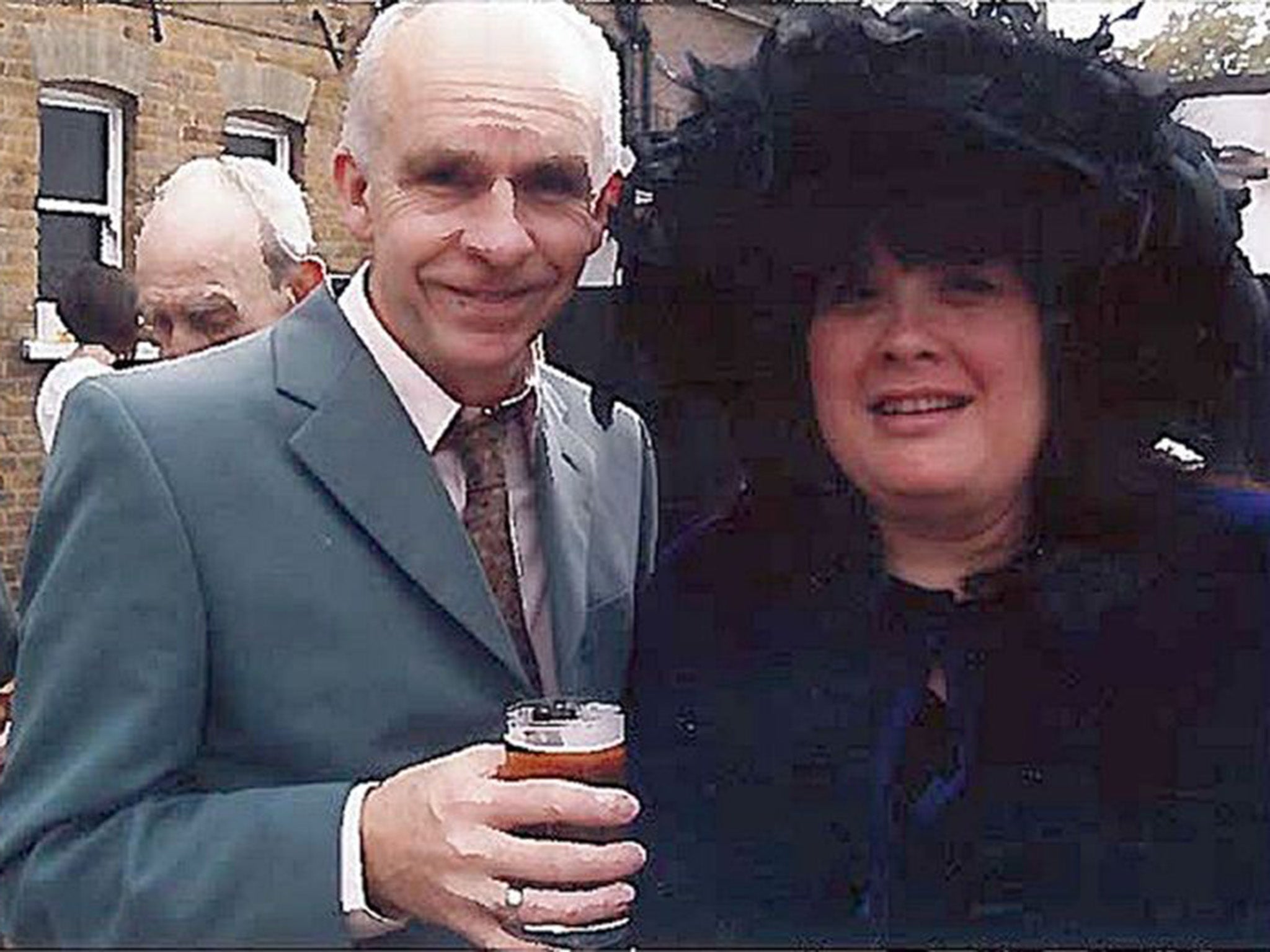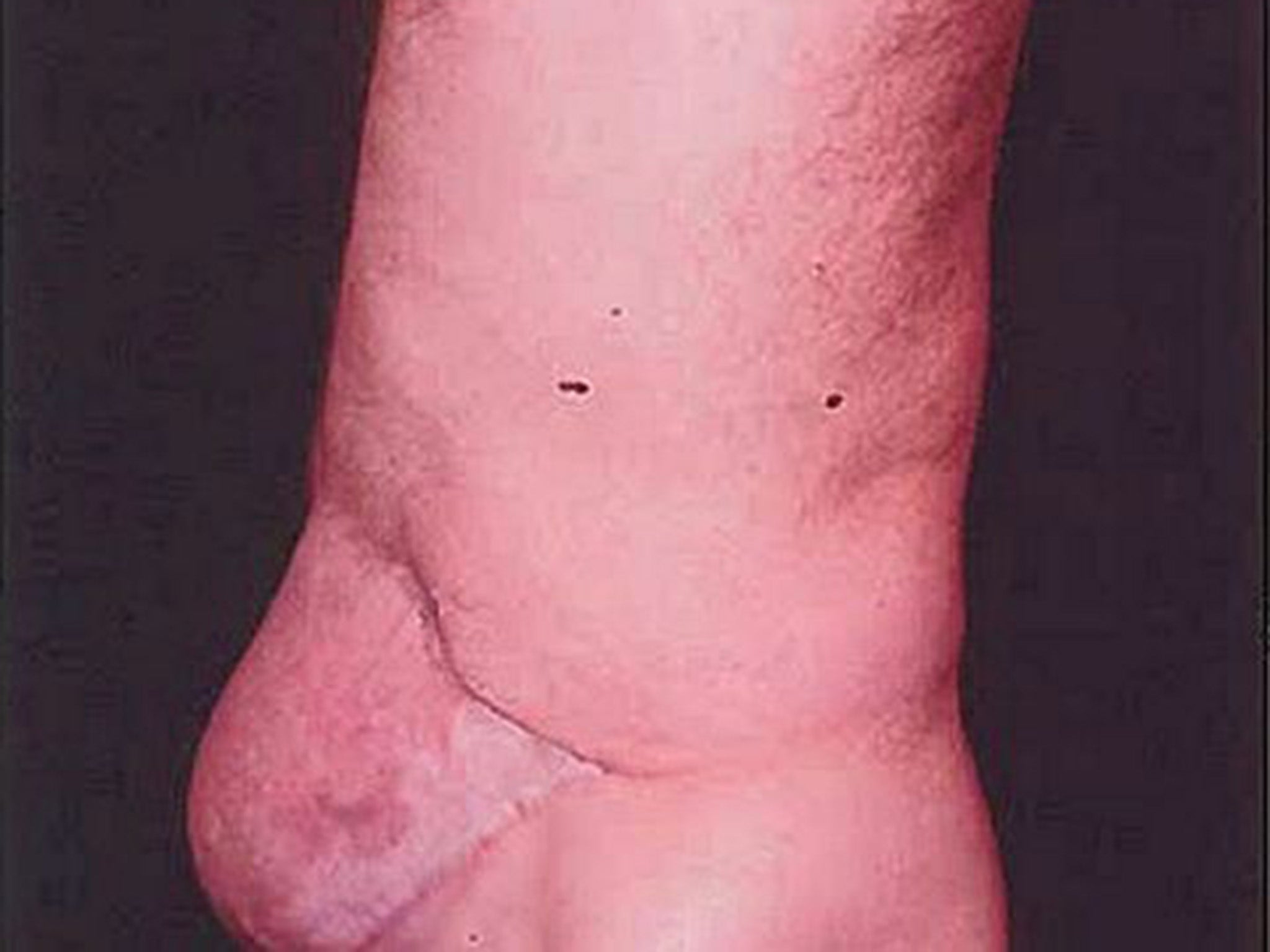Man wins payout from Essex hospital after losing penis to flesh-eating superbug
Andrew Lane says he is trying to raise awareness of the bacteria, necrotising fasciitis, after his ‘horrendous experience’ in 2013

Your support helps us to tell the story
From reproductive rights to climate change to Big Tech, The Independent is on the ground when the story is developing. Whether it's investigating the financials of Elon Musk's pro-Trump PAC or producing our latest documentary, 'The A Word', which shines a light on the American women fighting for reproductive rights, we know how important it is to parse out the facts from the messaging.
At such a critical moment in US history, we need reporters on the ground. Your donation allows us to keep sending journalists to speak to both sides of the story.
The Independent is trusted by Americans across the entire political spectrum. And unlike many other quality news outlets, we choose not to lock Americans out of our reporting and analysis with paywalls. We believe quality journalism should be available to everyone, paid for by those who can afford it.
Your support makes all the difference.A cancer patient has successfully sued an Essex hospital after he lost most of his penis to a flesh-eating superbug.
Andrew Lane, 63, contracted the infection necrotising fasciitis while undergoing an operation to have his prostate gland removed at Southend Hospital.
His lawyers said his bowel was punctured during the procedure, which led to the infection, with staff noticing the injury six days later.
Mr Lane was awarded a six-figure payout and is now trying to raise awareness about the superbug.
According to NHS England, necrotising faciitis is a rare but serious condition that releases toxins which damage nearby tissue causing swelling and blisters.
If left untreated it could lead to sepsis – which can be fatal.
Mr Lane, from Thurrock in Essex, said he had to have so much damaged tissue removed he lost most of his penis and was left with a protruding stomach where the outer tissue had been “eaten away”.
He can no longer have sex, is incontinent and has been treated for depression following the life-changing operation. He also had to use a catheter and a colostomy bag for two years after the operation in 2013.
Mr Lane, who married his long-term partner shortly after being discharged from hospital, said: “My wife Sue and I have been together for 18 years and enjoyed a healthy sex life, but since this happened that has been impossible.
“It’s been a difficult thing to come to terms with for both of us. I know Sue still loves me, but I do feel less of a man.”
The former architectural draftsmen said he felt unable to return to his job and now works as carer.

Mr Lane added: “They’ve admitted their mistake, but I’ve not had an apology and knowing that just a scan a few days earlier would have prevented all of this is very difficult to accept.
“I’ve been compensated, but I’ll never get my health back and I just want other people to be aware of how dangerous this flesh-eating bug is.”
Tom Spearpoint, a clinical negligence lawyer at Slater and Gordon, representing Mr Lane, said: “Mr Lane has shown incredible strength and selflessness in speaking out to raise awareness of this rare but serious bacterial infection, which left untreated can be life threatening.
“The impact has been devastating, both physically and emotionally, but the Trust’s admissions have at least given him some closure and the means to get the care and support that he needs to move on with his life.”
Denise Townsend, director of nursing at Southend University Hospital, said: “I can confirm that the Trust is in communication with Mr Lane regarding his case, a settlement sum has been agreed and that the Trust has admitted failures in relation to delays in Mr Lane’s diagnosis.”
Join our commenting forum
Join thought-provoking conversations, follow other Independent readers and see their replies
Comments